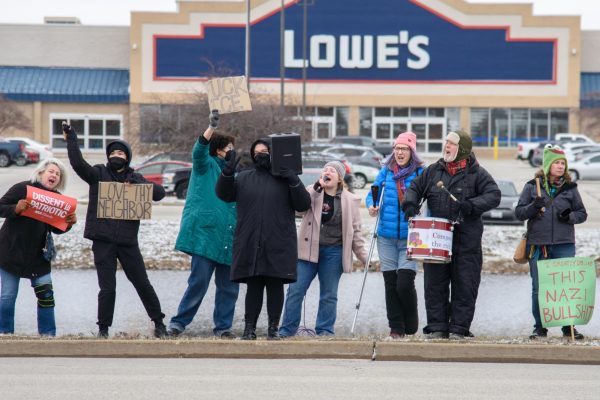Residents appeal against proposed Urbana Wal-Mart
Oct 5, 2004
Last updated on May 11, 2016 at 04:05 p.m.
Urbana property owners Robert Brunner and Celia Allen are planning to appeal to the Fourth District Appellate Court in Springfield after a Champaign County Circuit judge approved a drainage plan on July 23 that would allow plans for a proposed Wal-Mart in Urbana to go forward.
Although Allen and Brunner are objecting to the Wal-Mart for several different environmental reasons, the argument in this appeal focuses only on the flooding caused by the development of the area near the Wal-Mart’s intended location.
The area, which was formerly a swampland, is located near the southeast corner of High Cross Road and University Avenue. Underground tiles were built 80 years ago to get rid of the excess water that was in the swamplands. With that extra water removed, the area became the farmland that is now the planned location of several developments, including the Wal-Mart.
Brunner and Allen’s case centers around the claim that the tiles can no longer handle the run-off caused by the new development, and even if they are replaced under the drainage plan, the development of the land will still cause flooding.
Get The Daily Illini in your inbox!
Both Allen and Brunner said engineers hired to survey the land and flooding problem said the flooding would continue in the future. Brunner said he is not “anti-Wal-Mart,” but hopes the store can be built in a different location
Brunner said 30 acres of his land have flooded since the building of the development began. He said that his bean crop and a nature reserve behind his home were damaged in June.
Since the building of the development, Allen said her house – which is one mile south of her home on East University Avenue – has flooded six times.
“The city pushed through for the building of the Wal-Mart over many objections,” she said. “This year our home has had many problems with flooding. I cannot afford to build another house, and I shouldn’t have to. If we have to fight for our property, that’s the way it is.”
Brunner and Allen said they also object to the environmental hazards the development of the store may cause.
“Placement for a huge complex like Wal-Mart is going to be environmentally unfriendly in any way imaginable,” Brunner said. “It is environmentally unsound. There will be problems of pollution, urban sprawl and desecration of the good earth.”
Brunner said he is worried about the cement, steel, asphalt and other building materials that may wash down from the development onto his property, which is located east of the Beringer Commons subdivision, at the northwest corner of High Cross Road and University Avenue.
Urbana City Council member Joseph Whelan said the benefits of a new Wal-Mart outweigh the potential negative impact Brunner and Allen suggest the development will have. Last month, the city council voted to push back the completion date for the new Wal-Mart.
“I understand the residents’ ‘not in my backyard’ mentality, however we need the tax revenue,” Whelan said. “The issue of pollution is a myth. We are not going to have pollution, but it is a hot button the residents push.”
Whelan said he believes the run-off and flooding problems will be solved once the new tile is placed underground.
“It is important for Urbana to have a general merchandiser such as Wal-Mart,” said Urbana Mayor Tod Satterthwaite. “Large retailers like Bergner’s and Kmart closed and we have a void in the retail sector. Wal-Mart saw this as a chance to grab a share of the market.”
Satterthwaite said the Urbana City Council never had a vote on this issue.
“Some are for it and some are against it,” Satterthwaite said. He said he recognizes that Wal-Mart has every right to build on the land, but that the council did nothing to secure the building of their new location. “We provided no incentives, no roads, no tax rebates.”
Satterthwaite agrees with Whelan that the new Wal-Mart has benefits, including the $500,000 a year he said the new Wal-Mart could bring in through sales tax revenue.
“The sales tax base is the number one source of revenue for the city,” he said. “If people can’t shop in Urbana, they will go elsewhere and take their tax dollars with them.”





